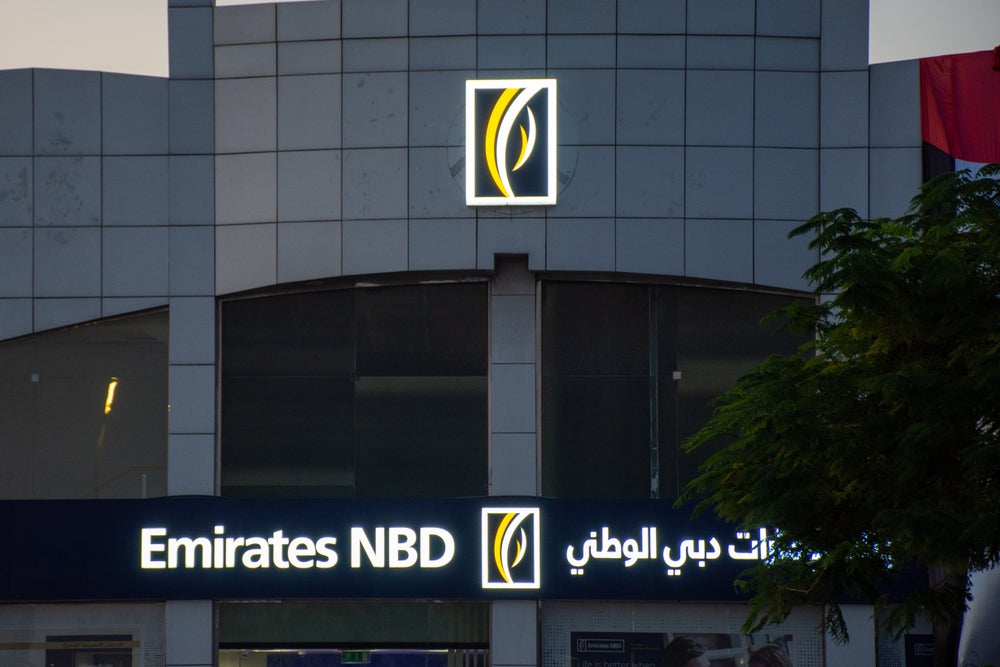CI recently hosted a round table in the United Arab
Emirates on the outlook for prepaid solutions in the Middle East.
Representatives from Citi, Visa, Abu Dhabi Commercial Bank,
Emirates NBD, TSYS and other leading payment players in the region
joined together for a lively and thought-provoking
discussion.
The latest in the series of industry roundtables hosted by Cards
International took place in Dubai in the United Arab Emirates in
late September, in which we invited a broad array of industry
players across the entire cards value chain to discuss the
prospects for prepaid in the Middle East region. The following
article is an edited version of what was discussed.
David Parker, consultant,
Polymath Consulting (roundtable moderator): What are the biggest
challenges facing prepaid in the Middle East region? What are the
top two or three issues you view as being most
important?
Surendra Bardia,
vice-president cash management head, UAE & Iraq, Citi:
The main challenges as we see them are infrastructure and education
of the end user. Many consumers are familiar with prepaid mobile
phones, but prepaid payment cards are a different matter.
No bank that has entered the prepaid market
has succeeded in having a sustainable prepaid card programme due to
the fact people are not familiar with the concept. People in this
market are more used to having loans or traditional credit cards,
whereas people are not really familiar with prepaid cards.
How well do you really know your competitors?
Access the most comprehensive Company Profiles on the market, powered by GlobalData. Save hours of research. Gain competitive edge.

Thank you!
Your download email will arrive shortly
Not ready to buy yet? Download a free sample
We are confident about the unique quality of our Company Profiles. However, we want you to make the most beneficial decision for your business, so we offer a free sample that you can download by submitting the below form
By GlobalDataMeena Gajaria, product
manager, prepaid, Emirates NBD: The main challenge would
be how to make profit from prepaid cards. The revenue margins on
prepaid are not as easy as they would be on a credit card or on
other cards, so we need to find out how to increase the value
proposition.
We have a unique market in this region where
the majority of the population is from the Indian sub-continent and
from abroad, and a lot of those people are classed as unbanked. We
need to compare and develop and define the best ways to go out and
approach those segments.
Nona Fayaz, business
development manager EFTPOS solutions, STS: While there are
challenges, prepaid is good because it is a product that can really
reach out to everyone. Anyone can use prepaid without having any
kind of credentials. It doesn’t matter what kind of social status
you have. People should be able to see it is really useful and easy
to use.
Taff Morris, business development
manager, Visa CEMEA: My issue would be around
profitability. What is the tipping point, whether it is a single
load or a reusable product? Where do you hit the point of
profitability, taking into account the cost of manufacture and
marketing, the channel access, whether you use kiosks, whether you
use self-help for internet-based top-ups, reloading and so on? What
is the profitability point for salary and gift cards, and all the
other verticals? Who owns the prepaid product? It is kind of a
mongrel if you excuse my expression, in that everyone likes it but
no-one wants to own it.
Stuart Isted, relationship manager,
Visa CEMEA: There are three challenges. One is education
of the end user or customer, education of the bank staff, and the
shop assistants accepting the cards. We really have to get down to
the basic level of education.
We have to talk about how we educate the sales
process, in bank branches or in retail environments – if you fail
to prepare you prepare to fail. I have seen this recently where I
have been into one bank and they recommended that to get a gift
card or a general-purpose card, I go to another bank’s branch and
pick up their gift card.
I get fed up with people talking about prepaid
as just prepaid. Prepaid for me is a platform. Payroll is very
different to gifting, and what I would like to see is people being
more specific about prepaid. So we need to talk about gifting,
about corporate incentives, about payroll. There are various
different animals and we need to make sure that we talk about
actual opportunities within the vertical segments.
The third thing is innovation. How do you take
your gift card programme or payroll programme and launch
successfully? It is tough to make money out of prepaid as Meena
mentioned, but the money is there to be made. What I would like to
see is in more mature markets where prepaid has been around a
little bit longer, what have more mature markets done to innovate?
If you have got five or six different prepaid offerings in the
market then how do they differentiate?
Malek Mroueh, senior director regional
development MEAP region, TSYS: We can talk until we are
blue in the face about how prepaid is a platform and not a single
product.
We consistently hear messages that just dilute
the power of the product just by focusing on one vertical. It does
not start and end with the card. Depending on the vertical you are
in, there is a whole host of activities that need to be launched
around it, from something as simple as selling the marketing data
to upgrading and uplifting clients.
The other area of education is around
partnerships, and understanding how you make money vis a vis BIN
sponsorship and maintenance. People still don’t understand the
mechanics that make it worthwhile. The basics should be common
knowledge.
The last thing is infrastructure. Once you
have got the basics in place then what happens next? Do you want
customers in your branches? Are they customers you want to have or
not? What is your infrastructure? Do you need to go to kiosks, do
your ATMs need to be upgraded?
Infrastructure and how you handle channel
access are things I would like to see more education, discussion
and modelling around.
Kaizar Patla, senior vice-president,
business head of cards, ADCB: The fact remains that
everyone is aware that we have a large immigrant population in this
market and there is a huge blue collar unbanked population that we
could give prepaid cards to.
So why isn’t anyone launching prepaid cards?
Why isn’t the prepaid market here as big as other markets around
the world? If a product makes money and if the product can sell,
then I think bankers would find a way to launch it. There are
challenges beyond education.
The payment associations have been in
discussions with banks for over a decade now, but how many banks
have been able to successfully launch prepaid products? Show me how
many successful prepaid products are in that space today.
Prepaid products that have been launched have
more or less failed, even though banks have the networks, the
relationships with the payment associations, and the distribution
reach. I think it is important to ask ourselves these questions so
that we can figure out how we can make these products and platforms
successful. If bankers are not getting into this market, there is a
damn good reason why.
Mroueh: It is a question that
should be part of our discussion because I back you up on this. Why
aren’t the issuers doing it? Is it lack of knowledge?
Patla: I think it is beyond
lack of knowledge and more to do with many other challenges that we
face. If a product sells and if it is user-friendly, then customers
will educate themselves.
If a product is required and if it makes
financial sense for people, then education will automatically
follow. I know there is a desire to issue cards but what does it do
for the bottom line? I can put out a million cards but at what cost
and for what return?
Mroueh: You are hitting the
problem on the head, which is knowing that there is the market and
there is the population. So why, with all the best banking minds in
the world, are banks not able to produce a prepaid product that
makes a profit?
Patla: In terms of the actual
logistics, if I wanted to issue a card to a non-resident worker,
having in place know-your-customer (KYC) requirements and so on,
what if they do not have a social security number?
If they walk into a store and say they want a
card off the shelf, then they would have to give a passport copy as
per central bank requirements, fill out an application form, they
have to go to the bank and set it all up – it is hardly an
off-the-shelf product! A potential buyer cannot pick up the card,
go to the store clerk, give them the money to load the card, and
activate and use the card straight away.
Parker: Actually, I did that
today. We were able to do just that – we went into a store, we gave
a passport and ID copy, handed over the money to load it and within
30 seconds we had a card.
Morris: There is a product in
the UAE which is the first mall card in the region, and it is a
single load card. Visa’s rules for a single load card allow a load
of up to $750 without KYC – with KYC requirements, you get an
unlimited load.
Patla: So a $750 single load
card – is that really the kind of business issuers want to get
into?
Shankar Ram, head of product solutions, Visa
CEMEA: Fundamentally I think there have been no champions within
the banks, maybe with a couple of exceptions. Prepaid is an
extension of debit so maybe the debit side of the bank should run
it.
It is a question of having sponsors within the
bank. But there is a conflict. You don’t want these customers in
your bank, but at the other end you are saying that there is a huge
opportunity to serve these people.
Nona Fayaz, business development
manager EFTPOS solutions, STS: For me, the big challenge
is the different cultures in different banks. The fact is that the
banks don’t appear to be agreeing on any single point. Each
department has their own idea. The biggest problem is the different
ideas and different cultures across different banks.
Mroueh: That is a good point
about the cultural divide. How do you bridge that cultural divide
between the bank and a telco or retailer for example? They talk in
completely different ways.
Parker: None of us round this
table speak retailer language. Retailers have their own way of
talking. The culture differences between industries are huge.
Kunal Bist, vice-president, treasury
and trade solutions, MENA, Citi: The dilemma is if I have
a card product that makes me 10 times more profit than another card
product, why should I invest my time and money into the other
product?
But the market here is evolving very quickly.
That is why we adopted the strategy of being here now and issuing
prepaid cards, not from the retail bank but from the corporate
bank. We figured out that if we don’t get into the market right
now, the costs will rise steeply and there will be other people who
get into the market and customers will not get the value that they
did previously, and that’s not a stage where you want to be.
Secondly, as a bank, who do I focus on as a consumer?
If I do KYC on one large client, can I give
him 50,000 cards, or do I focus on the man in the street? It is
important to gauge consumer behaviour, figure out what their needs
are, and how to integrate that with the other applications that a
consumer uses, such as a mobile phone or metro card. And how do you
apply that to the local market? If you have a western European
model it may not work here.
Parker: It is very hard to
demonstrate how it applies when there are no successful case
studies in the Gulf Cooperation Council countries. It is a chicken
and egg situation.
Patla: There is a tendency to
copy best practices. If people see value and they see it is worth
replicating, people will move more quickly to adapt it. If we can
show value then there is a lot of opportunity.
Roundtable:
Attendees
The Cards International roundtable
participants were, in alphabetical order:
• Surendra Bardia, vice-president cash
management head, UAE & Iraq, Citi
• Kunal Bist, vice-president, treasury and
trade solutions, MENA, Citi
• Nona Fayaz, business development manager
EFTPOS solutions, STS
• Meena Gajaria, product manager, prepaid,
Emirates NBD
• Vishal Goya, business leader, debit product
management and development SAMEA, MasterCard Worldwide
• Stuart Isted, relationship manager, Visa
CEMEA
• Taff Morris, business development manager,
Visa CEMEA
• Malek Mroueh, senior director regional
development MEAP region, TSYS
• David Parker, consultant, Polymath
Consulting (roundtable moderator)
• Kaizar Patla, senior vice-president business
head of cards, ADCB
• Shankar Ram, head of product solutions, Visa
CEMEA
• Rabih Sfeir, director, C3 Card






